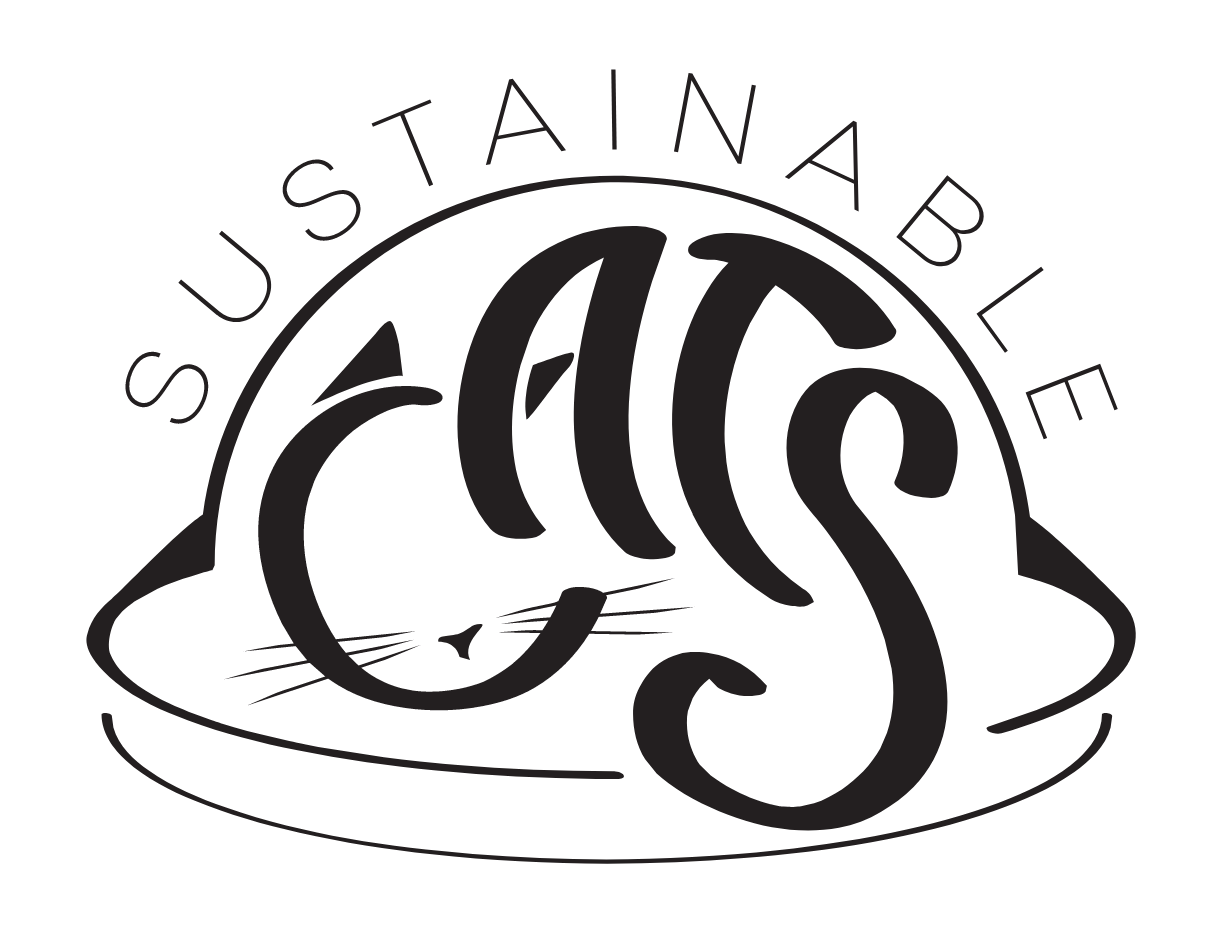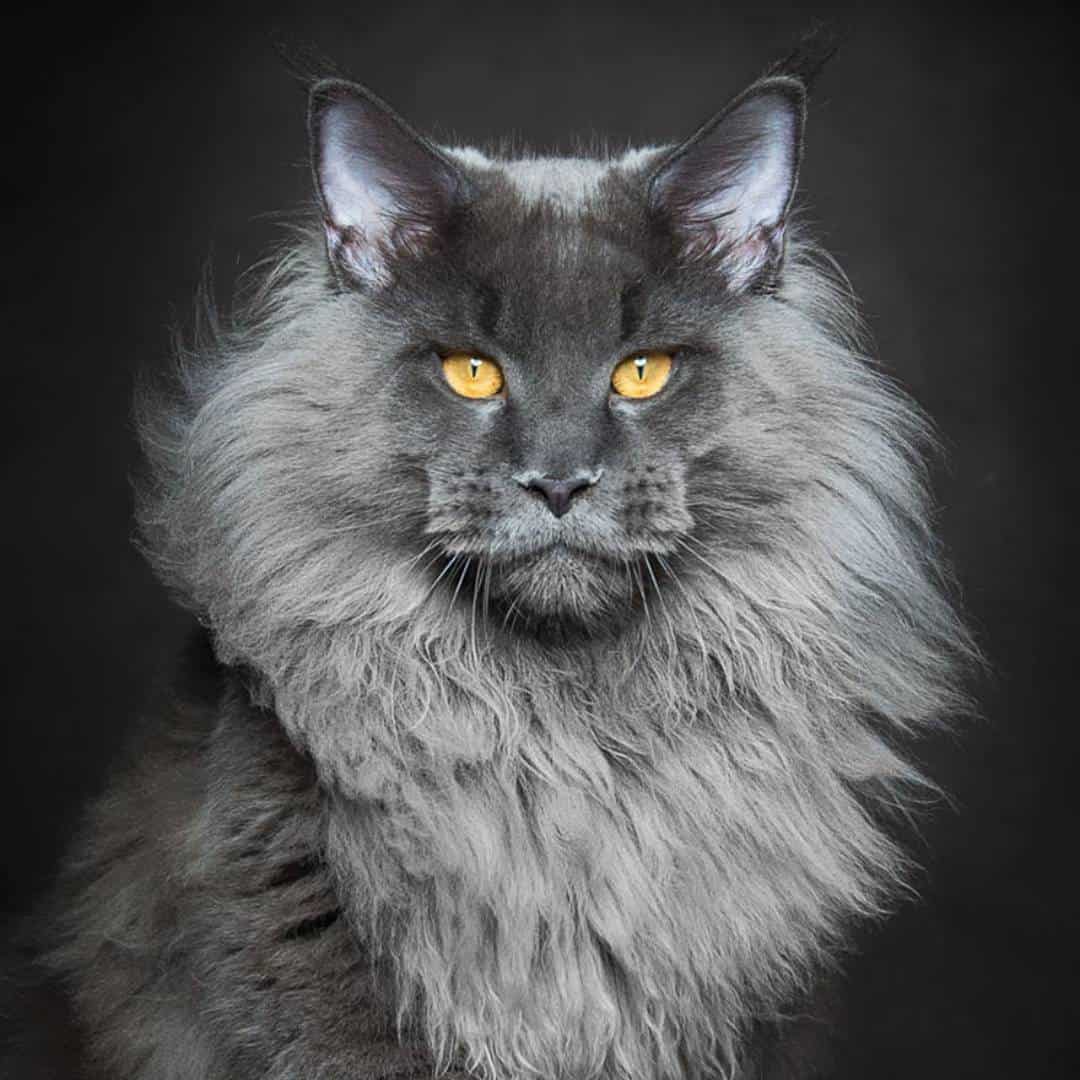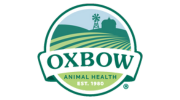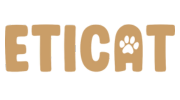With its majestic presence and impressive size, the Maine Coon cat commands admiration and respect, like a guardian of the northern forests.
Folklore abounds with tales of how this majestic breed came to be. Mariners purportedly brought them across tumultuous seas, perhaps from far-off Nordic shores or directly descended from the courtly cats kept by Marie Antoinette herself.
Their origin remains shrouded, but one thing is sure: the Maine Coon, North America’s most giant domesticated cat breed, holds an esteemed place in feline history, its emergence dates back to the 19th century in the northeastern United States, where it developed a hardy constitution from braving harsh winters.
Elegant yet rugged, they captivate.
Unraveling the Maine Coon’s Origins
The Maine Coon, a breed intertwined with North American lore, is thought to have descended from seafaring felines that accompanied Norse explorers to the shore of what is now Maine. This theory is bolstered by the breed’s substantial physical attributes, which resemble those of the Norwegian Forest Cat, suggesting a genetic bridge between these maritime arrivals and the indigenous feline population.
However, definitive genetic lineage remains elusive. The narrative is enriched with tales of domestic ship cats interbreeding with wild bobcats, a hypothesis lent credence by the Maine Coon’s tufted ears and imposing stature but one that remains scientifically unconfirmed.
Myth Meets History
The Maine Coon’s historical narrative is enveloped in a tapestry of folklore, enticing enthusiasts with a blend of fact and fiction, legend intermingling with the truth.
Commanding a mythic presence, tales spun around Maine Coons talk of foreign ships and bobcat liaisons, muddling the line between historical record and fanciful conjecture. Yet, scientific inquiry strives to unravel their true genesis.
Maine Coons were once rumoured to be part bobcat due to their ear tufts.
Despite the elusive genetic confirmation, the Maine Coon’s stature and character reflect environmental adaptation, a convergence of nature and nurture. As sustainable stewards, we must appreciate their complexity beyond mere mythology. Their ecological footprint mirrors our commitment to coexistence and care.
From Farm Cat to Showstopper
The transformation is nothing short of remarkable.
From rugged barnyard hunters to acclaimed pedigreed show cats, Maine Coons have transcended their humble beginnings. Initially valued for their prodigious rodent-catching prowess, they have become celebrated for their stunning physical attributes and genial temperaments. Today, the Maine Coon is revered not just for utility but also for its grandeur as a companion animal, merging functional with aesthetic sensibilities.
Their regal personality commands attention and adoration.
The Maine Coon’s rise in popularity is remarkable – a true testament to adaptive charisma. Their multifaceted nature resonates with enthusiasts, blending a rustic heritage with contemporary allure. This juxtaposition of the past with the present elevates their status from farmhand to feline aristocrat, creating a storied legacy that continues to evolve.
Their sustainable journey respects their majestic lineage.
Breeding practices have shifted towards emphasising preserving this iconic breed’s unique characteristics, with increasing attention paid to genetic diversity and health. Recent trends highlight a conscientious effort to ensure that the lineage of Maine Coons is perpetuated responsibly. This proactive approach safeguards the breed’s future, illustrating an intersection of heritage conservation with ethical breeding standards in the 21st century.
The Distinctive Maine Coon Look
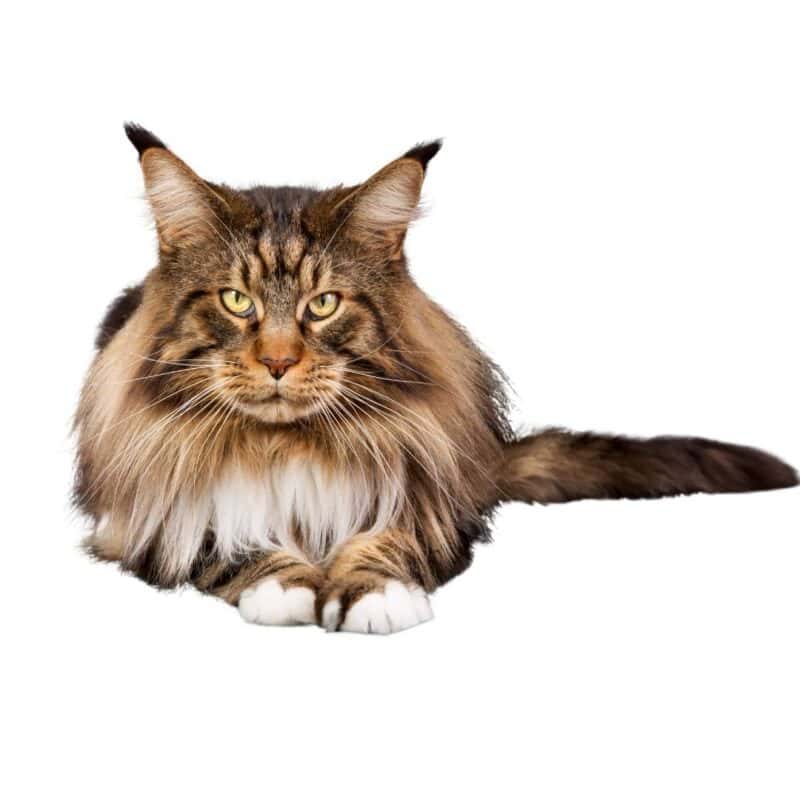
Maine Coons boast a rugged beauty, with tufted ears and bushy tails reminiscent of their forest lineage.
In a harmonious blend, their muscular bodies complement (not contrast) a gentle demeanour, reflecting a noble character sketched by nature and refined by evolution.
Their soft lynx-like tips and shaggy coats are evolutionary adaptions, odes to a wild ancestry.
Size and Physical Traits
Maine Coons are notable for their impressive size and robust build.
Since 2010, consistent records have shown Maine Coons on average outsize typical domestic cats. Weighing up to 18 pounds and reaching lengths of nearly 40 inches, they are among the most giant domesticated cat breeds.
Indeed, the Maine Coon’s dimensions contribute to its catching mystique. Males can significantly outweigh females, frequently tipping scales up to 18 pounds or more, while females typically range from 10 to 14 pounds.
Distinctive physical traits match the breed’s stature. Thick fur with a water-resistant quality, a remnant of their New England origins, braces them against harsh climates. Their wide-set eyes, square muzzle, and prominent ruff around the neck add to their regal presence.
These attributes, combined with tufted ears and a long, bushy tail, create the iconic look that is unmistakably Maine Coon.
Coat and Color Diversity
The Maine Coon’s coat is a marvel of genetics and adaptation. Resilient and lush, it is available in a remarkable spectrum ranging from solid shades to tabby patterns. Each fur strand is a testament to the breed’s adaptability across varying environments and climates.
At the heart of this diversity is a complex colour inheritance pattern. The Maine Coon’s fur can exhibit up to 75 colour variations, including solid, smoke, tabby, and parti-colour. This versatility reflects their genetic diversity, influenced by the breed’s extensive historical lineage and natural selection. The richness of colours and patterns camouflage them in their natural surroundings, a trait inherited from their forest-dwelling ancestors.
Maintenance of their luxurious coat requires regular grooming. Due to their dense and water-repellent fur, Maine Coons benefit from weekly brushing to prevent matting. Sustainable cat owners should consider eco-friendly grooming tools and natural products to ensure minimal environmental impact while caring for these intrinsic coat attributes.
Additionally, to preserve the health and lustre of the Maine Coon’s coat, a balanced diet is essential. High-quality cat food containing omega fatty acids supports healthy skin and fur growth. Sustainable-orientated guardians may explore ethically sourced, organic pet food options to ensure that their Maine Coon’s majestic coat remains vibrant while aligning with their environmental values. The judicious selection of food can contribute significantly to maintaining physical health and reducing the ecological pawprint of pet care.
Caring for Your Gentle Giant
Maine Coons possess a delightful disposition that pairs well with their impressive stature. Adequate exercise is imperative to maintain their muscular build and fend off obesity. Interactive play sessions using recycled or sustainably produced toys foster physical activity and mental stimulation in a manner that honours the earth. Additionally, the provision of climbing structures not only appeases their natural propensity to scale heights but also serves as an essential form of exercise.
The robust physicality of Maine Coons requires a watchful eye for orthopaedic conditions such as hip dysplasia. A regular veterinary check-up schedule is recommended to monitor health and preempt any potential issues. When navigating the spectrum of veterinary care, it’s advisable to select clinics that practice waste reduction and support environmental stewardship, ensuring that your Maine Coon’s well-being is in concert with sustainable values.
Daily Grooming Needs for Maine Coon Cats
Maine Coon cats are known for their stunning, long-haired coats. Regular grooming is essential to keep their fur looking its best and prevent matting. In addition to maintaining their appearance, daily grooming also promotes a strong bond between you and your Maine Coon, ensuring their comfort and well-being. Here are some essential grooming tasks to include in your daily routine:
- Brush Daily: Maine Coon cats have a thick double coat that requires regular brushing to remove loose fur and prevent tangles. Use a stainless-steel comb or brush with wide teeth to gently detangle their fur. Start from the head and work your way down to the tail, paying extra attention to the areas behind the ears, under the armpits, and around the tail. This helps keep their coat in top condition, stimulates blood circulation, and distributes natural oils for a healthy shine.
- Examine Ears: Maine Coons are prone to ear infections, so it’s essential to check their ears regularly. Look for any signs of dirt, wax buildup, redness, or discharge. If you notice any abnormalities, consult your veterinarian for proper treatment. Use a veterinarian-recommended ear-cleaning solution and a cotton ball to clean their ears. Gently wipe the outer part of the ear, avoiding the ear canal.
- Dental Care: Just like humans, cats can develop dental problems if their teeth are not adequately cared for. Implementing a regular tooth brushing routine is crucial for maintaining your Maine Coon’s oral health. Use a feline-friendly toothbrush and toothpaste to brush their teeth gently. Start by introducing them to the taste of the toothpaste and gradually progress to brushing their teeth. Regular dental care can help prevent periodontal disease and other dental issues.
- Trim Nails: Maine Coon cats have strong, sharp claws that can cause damage if not kept at a comfortable length. Regular nail trims are necessary to prevent their claws from becoming too long or sharp, which can lead to scratching furniture or accidental injuries. Use a cat-specific nail trimmer, and be cautious not to cut into the quick, which can cause bleeding and pain. If you need more clarification about trimming your nails, consult a veterinarian or a professional groomer.
By incorporating eco-friendly grooming tools into your routine, you can address the needs of your Maine Coon sustainably. Look for grooming tools made from sustainable materials or those that have minimal environmental impact. Additionally, consider using natural or organic grooming products that are free from harsh chemicals and biodegradable. By making these small changes, you can contribute to a more sustainable lifestyle while ensuring the well-being of your beloved Maine Coon.
Lifestyle and Nutrition for Maine Coon Cats
Maine Coon cats have a unique lifestyle and nutritional needs that are closely tied to their ancestral habits. A lifestyle that reflects their active, playful, and engaged nature is essential to ensure their overall health and well-being. Here are some critical considerations for their lifestyle and nutrition:
1. High-Quality Protein: Maine Coon cats are known for their muscular build, and a diet rich in high-quality animal-based proteins is essential for supporting their growth and maintaining their muscle mass. Look for cat food that lists real meat as the first ingredient, such as chicken, turkey, or fish. Avoid foods that contain excessive fillers or artificial additives.
2. Adequate Hydration: Maine Coon cats, like all cats, require constant access to fresh water to stay hydrated. Consider providing multiple water sources throughout your home and ensure the water is changed regularly. Additionally, incorporating wet food into their diet can help increase their overall moisture intake, as cats often have a low thirst drive.
3. Caloric Intake: Maine Coon cats are more significant compared to other cat breeds, and they tend to be more active. It’s essential to monitor their caloric intake to prevent obesity. Consult with your veterinarian to determine the appropriate daily calorie intake for your Maine Coon based on your age, weight, and activity level. Feeding them smaller, more frequent meals can help prevent overeating.
4. Regular Exercise: Maine Coon cats are highly energetic and require regular exercise to keep them physically and mentally stimulated. Interactive play sessions with toys, such as feather wands or puzzle toys, can help satisfy their hunting instincts. Additionally, providing them with secure outdoor access, such as a catio or supervised outdoor time, allows them to explore and burn off excess energy.
5. Sustainable Practices: When choosing pet food for your Maine Coon, opt for brands that prioritise sustainable practices. Look for ethically sourced ingredients and packaging that is recyclable or made from sustainable materials. Supporting companies prioritising environmental responsibility helps minimise the overall impact on the planet.
A balanced diet is crucial for maintaining the robust health of your Maine Coon cat. In addition to providing them with high-quality cat food, consider incorporating occasional treats specifically formulated for cats to ensure they receive all the necessary nutrients.
By making sustainable nutrition choices for your Maine Coon, you not only contribute to their health and well-being but also help protect the environment. Being mindful of their food’s ingredients and packaging can positively impact the planet, ensuring a better future for your cat and the world we share.
Health and Longevity Factors
Maine Coons are blessed with a robust genetic constitution, but their longevity is not purely luck. Proactive monitoring for common health concerns such as hypertrophic cardiomyopathy (HCM) and hip dysplasia is essential. Regular veterinary checks aid in early detection, prolonging the life span and enhancing the quality of life for these majestic felines.
To optimise the longevity of a Maine Coon, owners must implement a “preventive care mindset.” This encompasses regular screenings for genetic conditions, timely vaccinations, and parasite control measures. Addressing dental hygiene is crucial to prevent periodontal disease, which can have systemic effects. Furthermore, integrating sustainability into these health practices ensures the welfare of these beloved pets and the conservation of environmental resources.
Inherited Conditions
Genetic predispositions are inherent in all breeds.
Maine Coons, with their distinctive physical and behavioural traits, also have specific genetic health risks associated with their lineage. Responsible breeding practices can significantly impact the prevalence of these conditions. Specifically, the breeder’s awareness of and testing for genetic markers can reduce the transmission of these hereditary issues.
Hypertrophic Cardiomyopathy (HCM) is the most notorious inherited condition.
Regular screening for HCM is critical – as early detection leads to better management of this heart condition. This underscores the importance of genetic testing and responsible breeding practices to mitigate risk factors for inheriting such diseases.
Current research is exploring possibilities for eradicating genetic diseases from Maine Coons. Given the advancements in genetic sequencing and gene-editing technologies, the prospect of reducing or even eliminating hereditary conditions is promising. Ongoing research thus remains critical in the efforts to enhance the overall genetic health of the Maine Coon breed.
Preventive Measures and Regular Vet Visits
Consistent, proactive health maintenance is imperative to a Maine Coon’s well-being. Regular veterinary check-ups enable early detection and intervention for potential health issues.
Preventive care is the keystone in maintaining your Maine Coon’s health over its lifespan. Vaccinations, parasite control, and routine health screenings are vital components of this care. Such preemptive strategies serve to thwart common feline ailments and ensure the Maine Coon’s long-term vitality and quality of life. Moreover, incorporating sustainable practices such as biodegradable litter and eco-friendly toys helps minimise environmental impact while keeping your pet healthy.
For Maine Coons, specific attention is required for dental hygiene, weight management, and coat care. Regular brushing can prevent periodontal disease, while maintaining a balanced diet ensures optimal weight, thus reducing the risk of diabetes and joint problems. Professional grooming sessions might also be necessary to manage the breed’s luxurious fur, mainly to avoid matting and excessive shedding.
Furthermore, in line with sustainable ownership principles, select a veterinarian who aligns with eco-friendly practices. This may include digital record-keeping to reduce paper waste, responsible medical waste disposal, and promoting non-toxic cleaning methods within their facility. Such actions contribute to the bigger picture of environmental stewardship while providing superior care for your cherished Maine Coon.
Being a sustainable Maine Coon parent
Embrace eco-friendly cat ownership principles.
Adopting a Maine Coon often involves long-term commitment and responsibility. As sustainable cat parents, one should make choices that align with environmental stewardship. This includes utilising recycled materials for bedding and play, not to mention choosing sustainably sourced cat food. Additionally, prioritising spaying or neutering your Maine Coon diminishes the risk of overpopulation.
Examine the eco-credentials of your pet’s products.
Biodegradable options are available for essential items. For instance, litter derived from environmentally friendly materials and toys made from sustainable resources represent small steps toward a more extensive sustainable lifestyle. Furthermore, engaging in DIY projects for toy creation can be an excellent way to repurpose materials already at home.
Prioritise your Maine Coon’s health through sustainable practices.
Consider a diet rich in sustainably sourced nutrients. As obligate carnivores, Maine Coons require high-quality protein, which can come from responsibly harvested fish or grass-fed meats. Integrated health strategies, such as routine vaccinations and flea control, protect your pet and the surrounding ecosystem from potential disease spread.
Guide your gentle giant with eco-conscious care.
Regarding habitat, a robust scratching post – preferably made from renewable resources – is essential for exercise and claw maintenance. Additionally, providing a filtered water fountain featuring replaceable filters fosters hydration and the reduction of single-use plastics.
Support local and ethical pet suppliers for a greener impact.
When selecting food and accessories, choose manufacturers within the 2023 landscape that disclose their sustainability practices. This choice supports closed-loop economies and reduces transportation emissions. Engaging with companies that adopt transparent production and ethical labour practices encourages a market where environmental and social responsibilities are paramount to the care of your Maine Coon.
Is a Maine Coon a good family pet?
Maine Coons are known to be great family pets due to their friendly and gentle nature. They are often described as “gentle giants†because of their large size and affectionate demeanour. These cats are amiable and enjoy being around people, including children and other pets.
Their playful and easygoing nature makes Maine Coons a good fit for families. They are known to be patient and tolerant, even when they might be subjected to rough play. This trait makes them an excellent choice for families with young children, as they are less likely to scratch or bite when handled.
In addition to their friendly nature, Maine Coons are highly adaptable and can adjust well to different living environments. They can thrive in both large homes and apartments as long as they have access to enough space to roam and play. Their intelligence and curiosity also make them excellent companions, as they enjoy interactive play and can learn tricks or respond to training.
If you are looking for a family pet that is not only affectionate but also low-maintenance, Maine Coons can be a good choice. Although they have long fur, their coat requires minimal grooming compared to other long-haired breeds. Regular brushing to prevent matting and occasional bathing should be sufficient to keep their coat in good condition.
Overall, if you are seeking a loving and friendly cat that will fit nicely into a family environment, a Maine Coon can be an excellent choice. Their friendly and adaptable nature and low-maintenance grooming needs make them an excellent addition to any family.
How big do Maine Coons get?
Maine Coons can grow to be quite large compared to other domestic cat breeds. On average, these majestic felines can weigh anywhere between 12 to 18 pounds, with some individuals even reaching a weight of 20 pounds or more. Their size, though impressive, is not solely attributed to their weight.
Apart from being heavyset, Maine Coons are also known for their long bodies, muscular builds, and broad chests. Their large heads are adorned with tufted ears, and their eyes are wide and expressive. With their luxurious, thick fur and bushy tails, Maine Coons exude a regal and majestic appearance.
One distinct feature of Maine Coons is their ability to reach impressive lengths. From the tip of their nose to the end of their tails, these cats can measure anywhere between 40 to 48 inches. This includes their long, plumed tails, which can make up a significant portion of their overall size.
While Maine Coons may be one of the most giant cat breeds, their size does not compromise their agility or grace. These gentle giants are known for their playful and friendly nature, making them beloved companions for many cat lovers. So, if you’re looking for an awe-inspiring feline friend with a magnificently grand stature, the Maine Coon may be the perfect match for you. Maine Coons are known for their impressive size and stature. These majestic cats can grow large, weighing 15 to 25 pounds or more.
In 2016, a Maine Coon named Ludo was recognised by the Guinness World Records as the world’s longest domestic cat, measuring over 3 feet in length from nose to tail. This highlights the potential for Maine Coons to have not only substantial weight but also impressive length.
The size of a Maine Coon is influenced by various factors, including genetics and nutrition. These cats have a slow growth rate and typically take 3 to 5 years to reach their full size. Their large size is further accentuated by their long, fluffy fur and bushy tails.
Despite their impressive size, Maine Coons are gentle and friendly cats. They are known for their friendly nature, intelligence, and affectionate personalities. Their size may be intimidating at first, but once you get to know them, you’ll discover they are gentle giants who enjoy cuddling and being part of the family.
What colours can Maine Coons be?
Maine Coons can come in a variety of colours and patterns. They can be solid in colour or have a combination of colours.
Some standard colours for Maine Coons include black, white, red, cream, blue, and silver. These colours can be seen in various shades and intensities. Additionally, Maine Coons can also have patterns such as tabby, tortoiseshell, calico, and bi-colour.
Some specific patterns are unique to Maine Coons, such as the classic tabby pattern, which features swirls and stripes on the coat. Another unique pattern is the smoke pattern, where the top layer of the hair is of a different colour than the undercoat, giving a smoky appearance.
It’s important to note that the colours and patterns of Maine Coons can vary greatly and are influenced by genetics. Breeders and cat owners often use breed standards to categorise and identify the specific colours and patterns of their Maine Coons.
If you are considering getting a Maine Coon, it’s always a good idea to do thorough research and consult with a reputable breeder to understand the different colours and patterns available and choose the one that best suits your preference.
What are Maine Coon characteristics?
Maine Coon characteristics are distinct and captivating. Known for their large size and sturdy build, these cats are often called the gentle giants of the cat world. Their long, flowing coats in various colours and patterns add to their majestic appearance. Maine Coons have tufted ears, expressive eyes, and a bushy tail that is often compared to that of a raccoon.
In addition to their striking physical features, Maine Coons possess a friendly and sociable nature. They are known for their intelligence and adaptability, making them great companions for families and pets. Maine Coons are often described as being dog-like in their behaviour, as they enjoy playing, exploring, and even walking on a leash. Their affectionate and gentle demeanour makes them ideal for households with children.
Maine Coons have a reputation for being curious cats. Thanks to their strong and agile bodies, they are known to be skilled hunters and climbers. Despite their size, Maine Coons are graceful and nimble, making them excellent at navigating their surroundings with ease.
Caring for a Maine Coon involves ensuring their physical and mental stimulation. Regular grooming is necessary to maintain their luxurious coats, and interactive toys and scratching posts help keep them entertained and engaged. Providing them with ample space to explore and climb is also essential, as Maine Coons have a natural inclination for vertical spaces.
In conclusion, Maine Coon cats possess a unique combination of physical characteristics and personality traits that set them apart. Their size, beauty, and friendly nature make them a beloved and sought-after breed for cat lovers worldwide.
